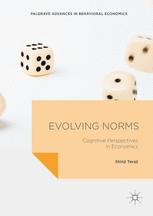

Most ebook files are in PDF format, so you can easily read them using various software such as Foxit Reader or directly on the Google Chrome browser.
Some ebook files are released by publishers in other formats such as .awz, .mobi, .epub, .fb2, etc. You may need to install specific software to read these formats on mobile/PC, such as Calibre.
Please read the tutorial at this link: https://ebookbell.com/faq
We offer FREE conversion to the popular formats you request; however, this may take some time. Therefore, right after payment, please email us, and we will try to provide the service as quickly as possible.
For some exceptional file formats or broken links (if any), please refrain from opening any disputes. Instead, email us first, and we will try to assist within a maximum of 6 hours.
EbookBell Team

4.4
62 reviewsThis book presents institutional evolution and individual choice as codependent results of behavioral patterns. Drawing on F.A. Hayek's concepts of cognition and cultural evolution, Teraji demonstrates how the relationship between the sensory and social orders can allow economists to track social norms and their effects on the global economy. He redirects attention from the conventional focus on what an individual chooses to the changing social order that determines how an individual chooses. Cultural shifts provide the environmental feedback that challenges the mental models governing individual choice, creating a cycle of coevolution. Teraji develops a general framework from which to examine this symbiotic relationship in order to identify predictive patterns. Not just for behavioral economists, this book will also appeal to those who specialize in institutional economics, the philosophy of economics, and economic sociology.